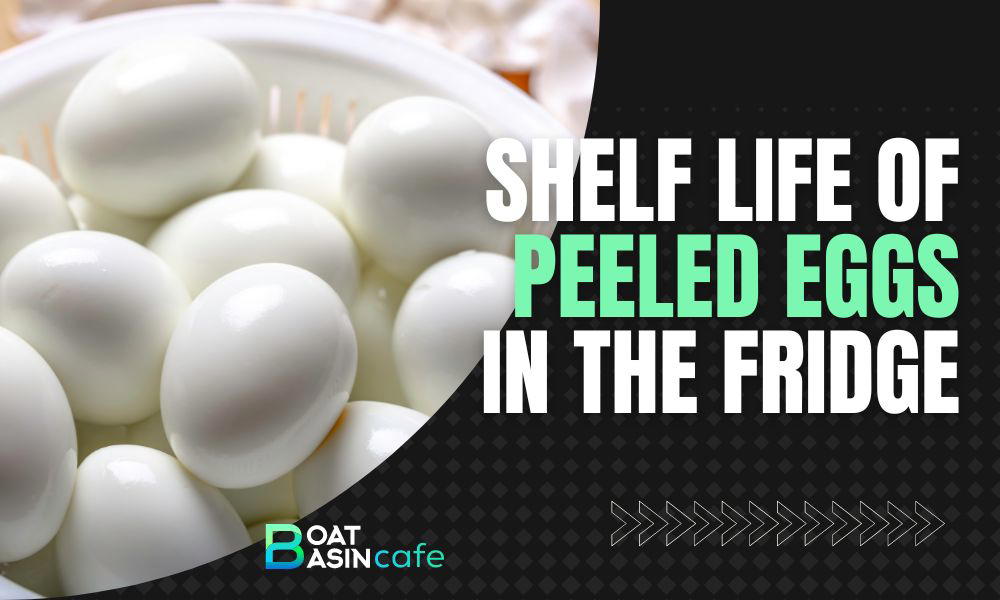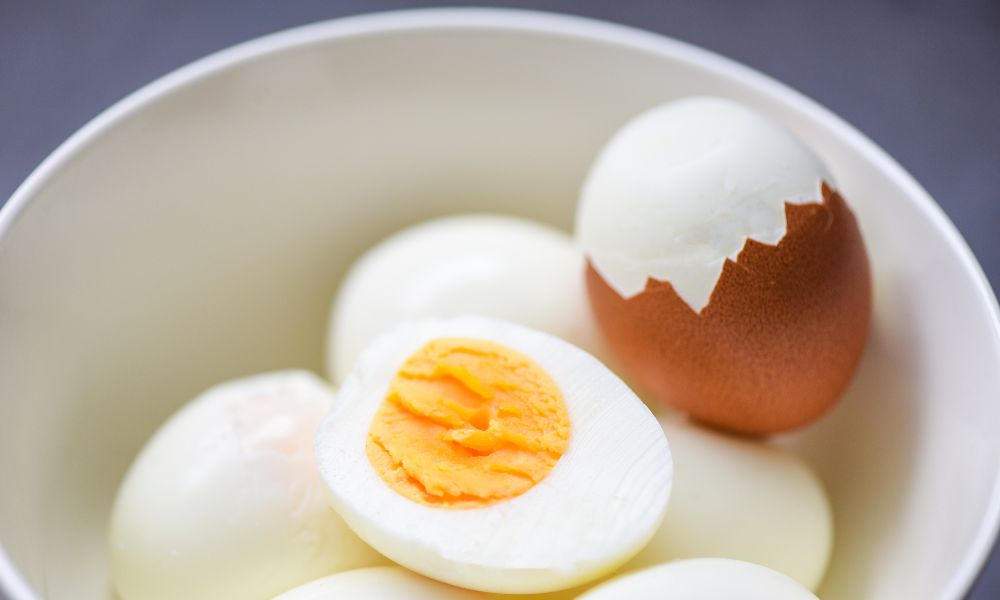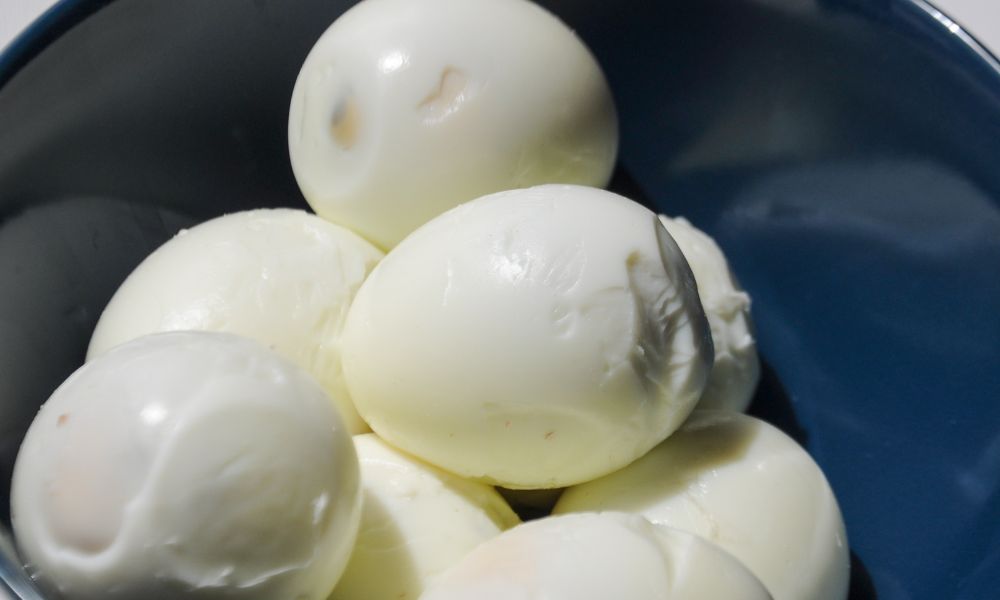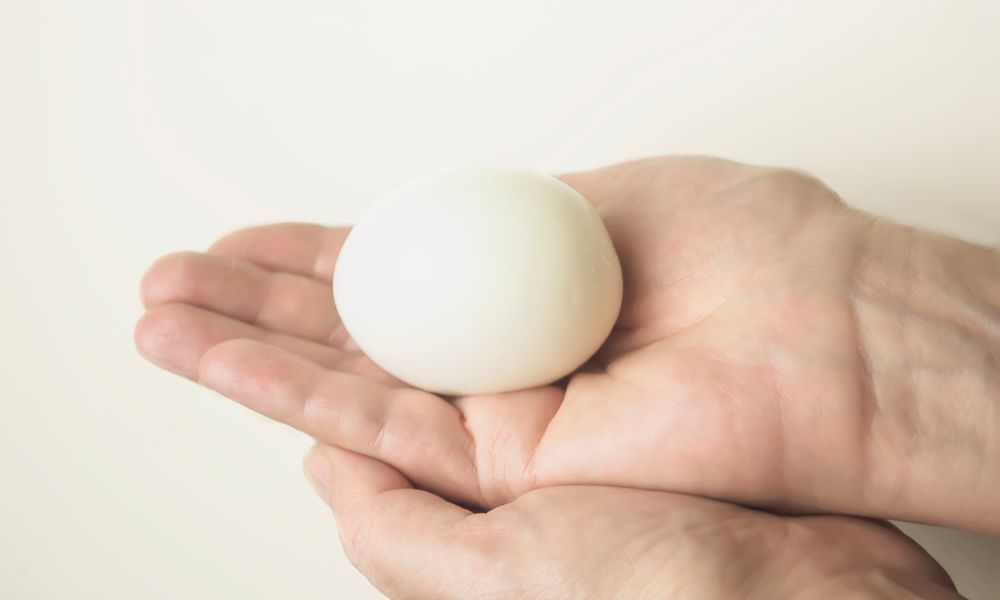Eggs are an essential part of many diets, providing a significant source of protein, vitamins, and minerals. They are versatile, delicious, and easy to cook, which makes them a staple in kitchens worldwide.
In this article, we will discuss the ins and outs of peeled eggs storage and provide practical tips to ensure the freshness and safety of your peeled eggs.

Understanding the Basics
Before diving into the specifics of storing peeled eggs, it is essential to understand some basics about an egg’s composition and the role of eggshell in preserving freshness.
A Brief Understanding of Eggs and Their Composition
An egg has three main components: the shell, the egg white (albumen), and the yolk. The shell is primarily composed of calcium carbonate, while egg whites consist of water, proteins, and mineral salts. The yolk, which is the richest part of the egg, contains fats, vitamins, proteins, and lecithin.
The Importance of an Eggshell in Preserving Freshness
The eggshell provides a natural barrier that protects the egg’s contents from bacterial contamination and exposure to air, which causes spoilage. The shell also retains moisture, ensuring the egg remains fresh for an extended period.
The Life of a Peeled Egg

Peeled eggs, once stored properly in the fridge, can last up to one week. While eggs in their shells can last for several weeks in the fridge, peeling the shell reduces the egg’s lifespan significantly. This is because the shell acts as a protective barrier against bacteria and moisture loss.
How Peeling Impacts an Egg’s Lifespan
When an egg is peeled, the vulnerable egg white is directly exposed to air, which increases the risk of spoilage and bacterial growth. The loss of the eggshell also means the egg loses its moisture-retaining barrier, which can cause the peeled egg to become dry and rubbery over time.
Factors Influencing the Shelf Life of a Peeled Egg
There are several factors that affect the peeled eggs shelf life, including the temperature of the storage environment, the egg’s freshness before peeling, and the peeling method. An egg that is stored in a proper environment, like a refrigerator, and is peeled using clean hands or utensils has a better chance of lasting longer.
Storing Peeled Eggs: The Dos and Don’ts

There are a few crucial tips to follow when storing peeled eggs in the fridge to preserve their freshness and prevent contamination.
Proper Storage Practices for Peeled Eggs
To maximize the longevity of peeled eggs, store them in a clean, airtight container. A shallow container or a resealable plastic bag with a paper towel to absorb any moisture works well for this purpose. It is crucial to refrigerate peeled eggs as soon as possible to maintain their freshness.
The Role of Temperature in Egg Preservation
The ideal temperature for peeled eggs refrigeration is between 34°F and 40°F. Storing eggs at this temperature slows down the natural aging process, thus prolonging their shelf life. It is essential to store eggs in the refrigerator as soon as possible after peeling them.
The Dangers of Improper Egg Storage
If a peeled egg is stored improperly, it can become contaminated with harmful bacteria, which may lead to food poisoning. This risk increases significantly when peeled eggs are left at room temperature for prolonged periods. Make sure to keep peeled eggs refrigerated to avoid this risk.
Understanding Egg Freshness: A Visual Guide

Recognizing the freshness of a peeled egg is essential to ensure safety and the best taste. Visual cues are a helpful way to differentiate between fresh and expired eggs.
Signs of a Fresh Peeled Egg
When a peeled egg is fresh, the egg white should be firm, moist, and translucent. The yolk should be bright yellow.
Recognizing When a Peeled Egg Has Gone Bad
Bad peeled eggs can exhibit signs like an off smell, a slimy or discolored surface, and a dark yolk. Separation of elements in the egg white and yolk or mold can also indicate spoilage. Use your senses and instincts to determine if a peeled egg has gone bad.
Health Risks of Eating Expired Eggs

Consuming expired eggs can lead to several health risks, including food poisoning, which is why it is crucial to monitor the freshness of your peeled eggs.
Symptoms of Food Poisoning from Bad Eggs
Signs of food poisoning from consuming bad eggs can include nausea, vomiting, diarrhea, stomach cramps, and fever. These symptoms usually appear within 6 to 48 hours after consumption and can last up to 7 days.
Precautions to Avoid Health Risks
Following proper storage practices, preventing peeled eggs from spoiling and checking eggs for freshness before consumption can minimize the risk of food poisoning. Ensure that the storage environment is clean and at the correct temperature, and always discard any eggs that show signs of spoilage.
Experimenting with Peeled Eggs: Recipes and More

Peeled eggs are incredibly versatile and can be used in a variety of creative dishes before they expire. Experiment with different recipes and make the most of your peeled eggs.
Quick and Easy Recipes Using Peeled Eggs
Some quick and easy ideas for incorporating peeled eggs into your meals include:
- Egg salad sandwiches
- Deviled eggs
- Scotch eggs
- Potato and egg salad
- Ramen with soft-boiled eggs
Innovative Uses of Peeled Eggs Before They Expire
If you find yourself with a surplus of peeled eggs nearing their expiration date, you can use innovative techniques such as:
- Making a large batch of egg salad for meal prepping
- Preparing appetizers for a party, such as deviled eggs or stuffed eggs
- Incorporating peeled eggs into salads and protein bowls for added nutrients
Peeled vs. Unpeeled: A Comparison of Shelf Life
Understanding the difference in shelf life between peeled and unpeeled eggs can help you make informed decisions on when to peel your eggs and the best storage practices.
The Difference in Longevity Between Peeled and Unpeeled Eggs
Unpeeled hard-boiled eggs can last up to two weeks in the refrigerator, while peeled hard-boiled eggs typically last up to one week. This disparity is due to the protective layer of the eggshell, which helps unpeeled eggs retain their freshness longer.
Pros and Cons: To Peel or Not to Peel?
There are advantages and disadvantages to both peeling and not peeling hard-boiled eggs. Pre-peeling eggs can make them more convenient and accessible for eating or meal prepping. However, their shelf life is shorter compared to unpeeled eggs.
On the other hand, unpeeled eggs have a more extended shelf life, but they can be more challenging to peel when needed, especially when you’re on the go or short on time.
Ultimately, your decision on whether to pre-peel eggs should be based on your specific needs, preferences, and storage environment.
Summary
In conclusion, the shelf life of peeled eggs depends on multiple factors, such as storage methods, temperature, and the freshness of the eggs before peeling. Proper storage practices, such as maintaining an ideal temperature and using airtight containers, can greatly extend the life of peeled eggs.
Always monitor your peeled eggs for freshness and check for any signs of spoilage to minimize health risks. Experimenting with different recipes and innovative uses of peeled eggs can help you make the most of their short shelf life.
FAQs
How can I tell if a peeled egg has gone bad?
A bad peeled egg may have an off smell, slimy or discolored surface, or a dark yolk. If you notice any of these signs or mold, it is crucial to discard the egg to minimize health risks.
Can you freeze peeled eggs?
It is not recommended to freeze peeled eggs, as freezing can lead to changes in texture and taste. The best way to preserve peeled eggs is by keeping them in an airtight container in the refrigerator.
How can I preserve peeled eggs for a longer period?
You can extend the life of peeled eggs by using preservation techniques such as submerging them in water, vacuum sealing them, or pickling them. Ensure that the storage environment is clean and well-maintained to prolong their freshness.
Can you get sick from eating an old peeled egg?
Yes, consuming an old or spoiled peeled egg can lead to food poisoning, which manifests as symptoms like nausea, vomiting, diarrhea, and abdominal cramps. Always check for signs of spoilage before eating a peeled egg.
Does the type of egg (e.g., free-range, organic) affect its shelf life once peeled?
The type of egg usually doesn’t impact the shelf life of hard-boiled eggs. However, factors such as egg freshness before boiling, storage temperature, and proper storage practices will have a greater impact on the lifespan of peeled eggs.








